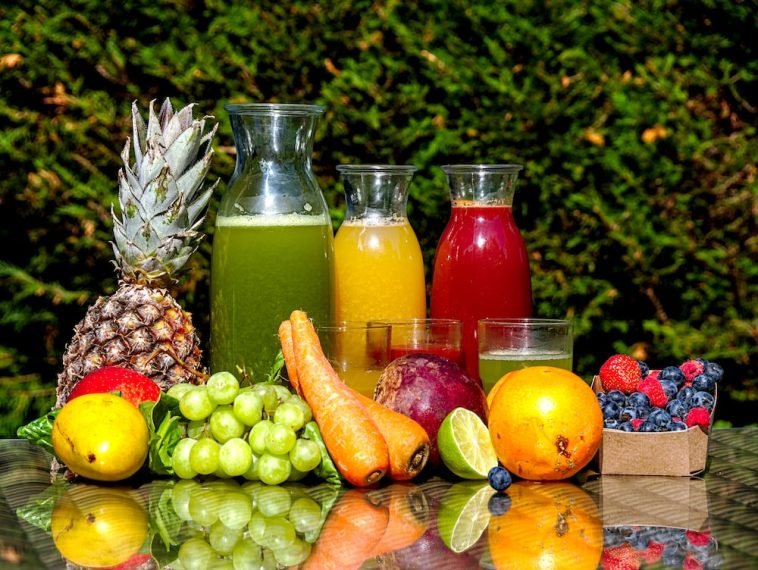Introduction.
Starting a fruit juice business in Nigeria can be a rewarding venture, both financially and personally. With a growing population of over 200 million people and increasing awareness of healthy living, more Nigerians are turning to natural drinks like fruit juices.
People want healthier alternatives to sugary soft drinks, and this has created a huge market for fresh, natural juices.
This guide walks through everything you need to know about starting your own fruit juice business in Nigeria.
From setting up a plan to understanding the equipment needed, sourcing fruits, and managing costs, I’ll break it down step by step.
Why Start a Fruit Juice Business in Nigeria?
There’s a strong demand for fruit juice in Nigeria. Statistics from Statista show that Nigeria’s beverage market has been steadily growing, with fruit juices being a major part of this growth.
This is because more people are trying to live healthier lives. Also, many families prefer fresh fruit juice for children as a better alternative to carbonated drinks.
It’s also a flexible business. You can start small and grow over time. Whether you want to sell bottled juice in stores, supply juices to supermarkets, or run a juice bar, there are several ways to get into this market.
How Do I Start a Fruit Juice Business in Nigeria?
1. Research the Market
Before starting any business, it’s important to understand what people want. Spend time learning about your potential customers.
What fruits are most popular in your area? Do people prefer bottled juices or fresh juice served on the spot? What’s your competition like?
2. Create a Business Plan
A business plan will guide your journey. It should include:
- What you’re selling: Natural fruit juices, smoothies, or both?
- Target market: Are you focusing on families, office workers, or gym-goers?
- Start-up costs: How much do you need for equipment, fruits, and packaging?
- Pricing: Decide on affordable but profitable prices.
- Sales strategy: Will you sell at a juice stand, deliver to homes, or supply stores?
3. Register Your Business
In Nigeria, you’ll need to register your business with the Corporate Affairs Commission (CAC). This makes your business official and opens the door for bigger opportunities, like supplying to supermarkets or partnering with events.
If you want to make large-scale production, you might also need to register with NAFDAC (National Agency for Food and Drug Administration and Control).
4. Find a Good Location
Location matters a lot. If you’re selling directly to customers, choose a spot with plenty of foot traffic, like near schools, offices, or markets.
If you’re producing and supplying juice, focus on having enough space for your equipment and storage.
5. Get the Right Equipment
To make fruit juice, you’ll need:
- Juicers or blenders: High-quality machines to extract juice efficiently.
- Storage containers: For keeping fruits fresh.
- Sealers and bottles: If you’re selling bottled juice.
- Refrigerators: To store both fruits and finished juices.
The cost of equipment will depend on your scale. For a small setup, you can start with just a blender and cooler.
6. Source Fresh Fruits
The quality of your juice depends on the quality of your fruits. Work directly with farmers or visit local markets to get fresh, affordable fruits. Popular options in Nigeria include oranges, pineapples, mangoes, bananas, and watermelon.
7. Learn Proper Juice-Making Techniques
Making juice is more than just blending fruits. Learn about:
- Cleaning and peeling fruits properly.
- Using the right combination of fruits for great flavors.
- Adding preservatives (if necessary) while keeping the juice healthy.
- Maintaining hygiene to meet health standards.
8. Brand and Package Your Juice
People often judge products by how they look, so make your packaging attractive. Invest in good-quality bottles and label them clearly with your brand name, logo, and details like ingredients and expiration dates.
9. Promote Your Business
Use social media platforms like Instagram, Facebook, and WhatsApp to showcase your products. Post clear photos, run promotions, and share testimonials from happy customers. You can also partner with local events, gyms, or schools to gain more visibility.
10. Keep Records and Stay Consistent
Track your income, expenses, and customer feedback. Good record-keeping helps you know if your business is growing and where to improve.
Stay consistent with your quality and customer service, as word of mouth plays a big role in attracting more customers.
FAQs
Q: How much money do I need to start a fruit juice business in Nigeria?
A: The amount depends on your scale. For a small business, you can start with as little as ₦50,000–₦100,000. Larger operations might need ₦500,000 or more, especially if you’re buying industrial equipment.
Q: Do I need to register with NAFDAC?
A: If you’re making juice on a small scale (e.g., selling fresh juice locally), NAFDAC registration might not be necessary. But for bottled juice sold in stores or at a larger scale, NAFDAC approval is required.
Q: What fruits are best for juice in Nigeria?
A: Oranges, pineapples, mangoes, bananas, watermelon, and guava are popular choices. They are widely available and loved by many Nigerians.
Q: Can I start this business from home?
A: Yes, starting from home is possible, especially if you have enough space for your equipment and can maintain good hygiene.
Q: How do I price my juice?
A: Calculate the cost of production (fruits, bottles, electricity, etc.) and add a profit margin. Make sure your prices are affordable but profitable.
Conclusion
Starting a fruit juice business in Nigeria is a smart idea if you’re ready to put in the effort. The demand for healthy drinks is growing, and with the right planning, you can create a profitable and sustainable business.
What’s your biggest challenge or question about starting a fruit juice business? Let’s talk in the comments below!





GIPHY App Key not set. Please check settings